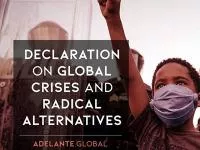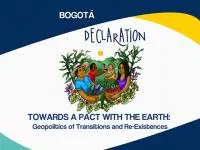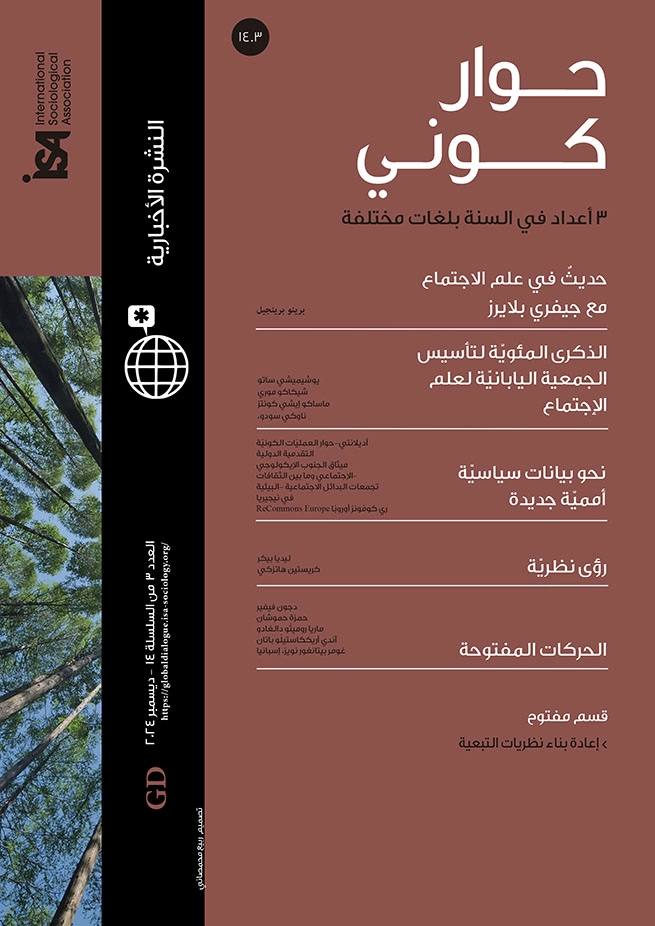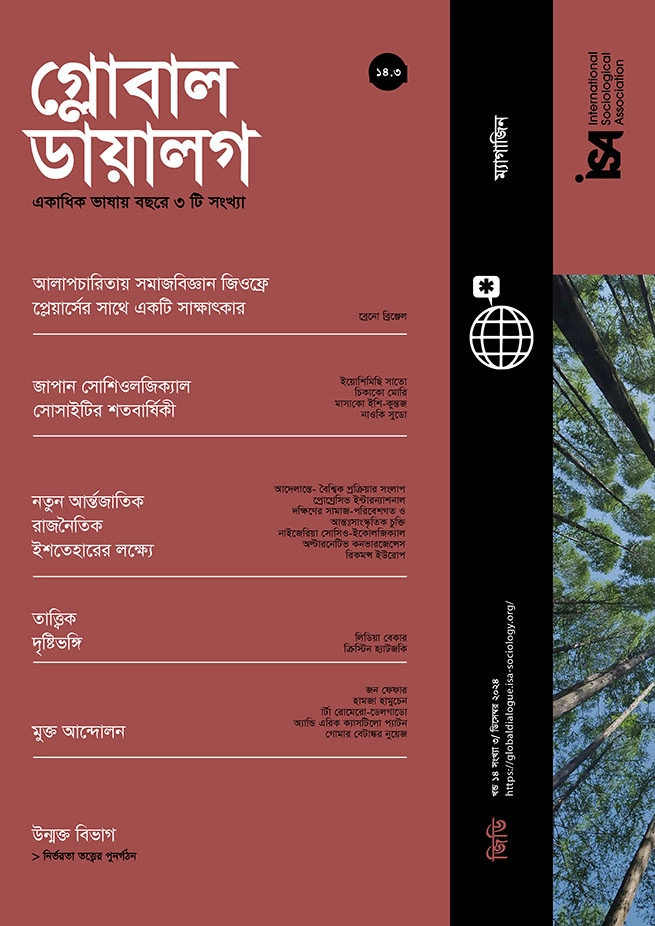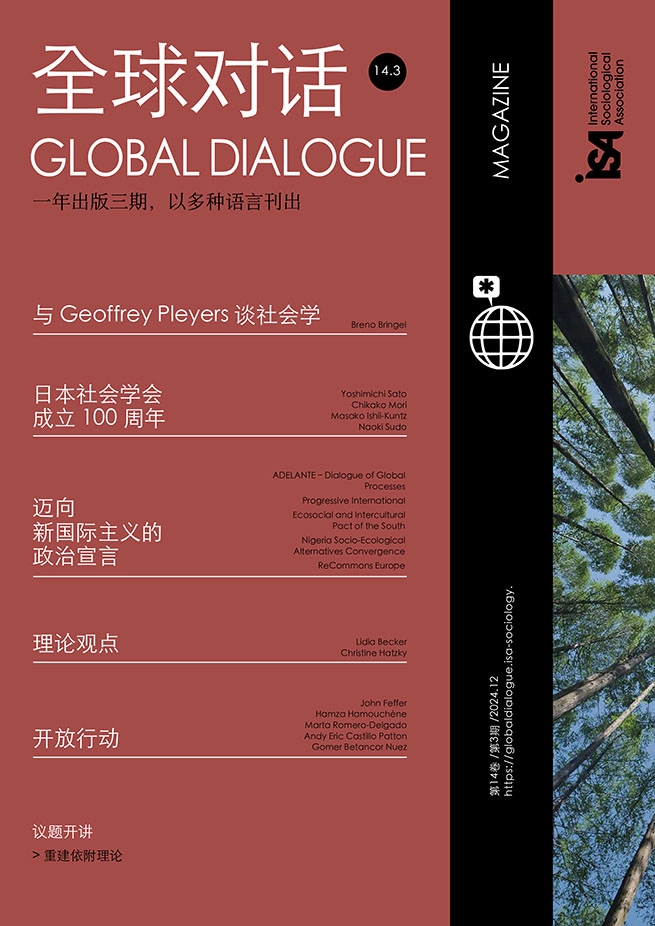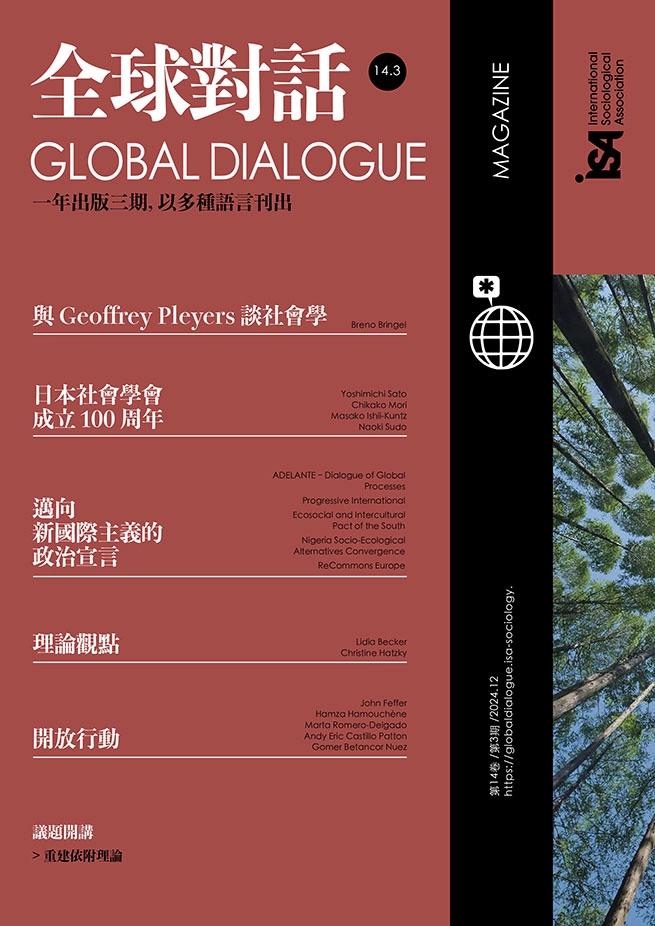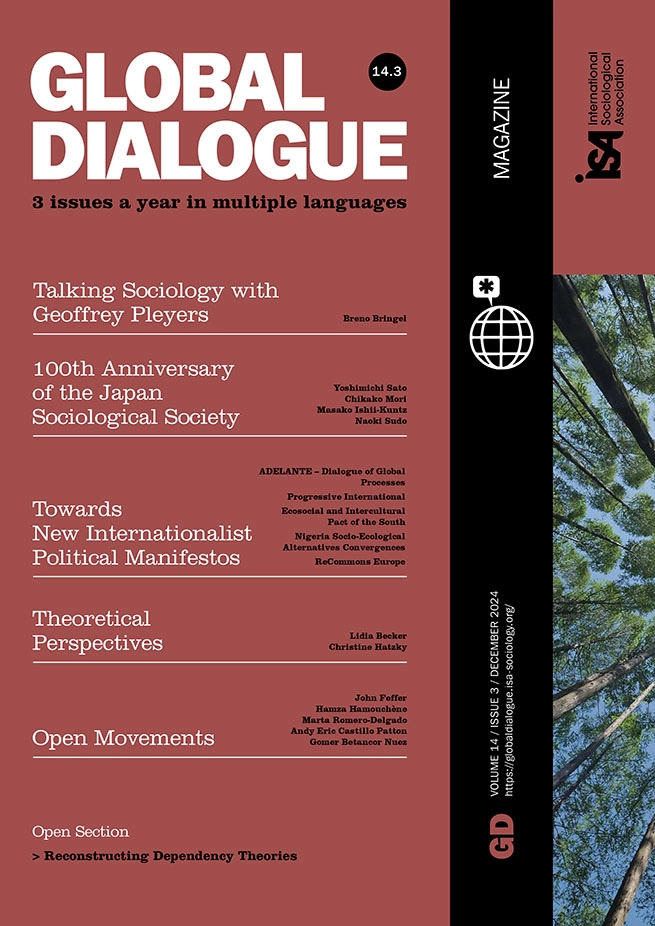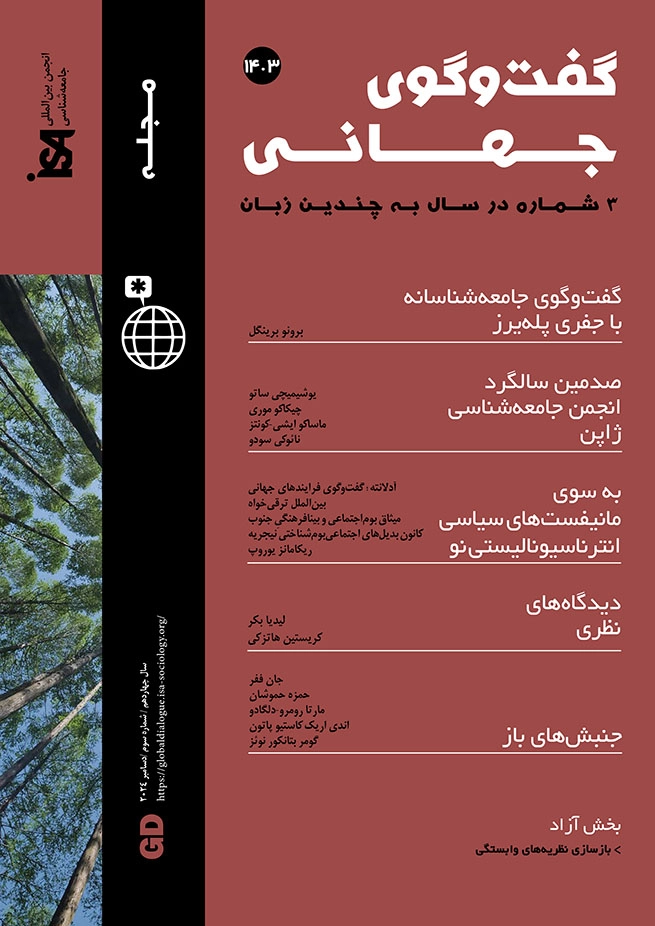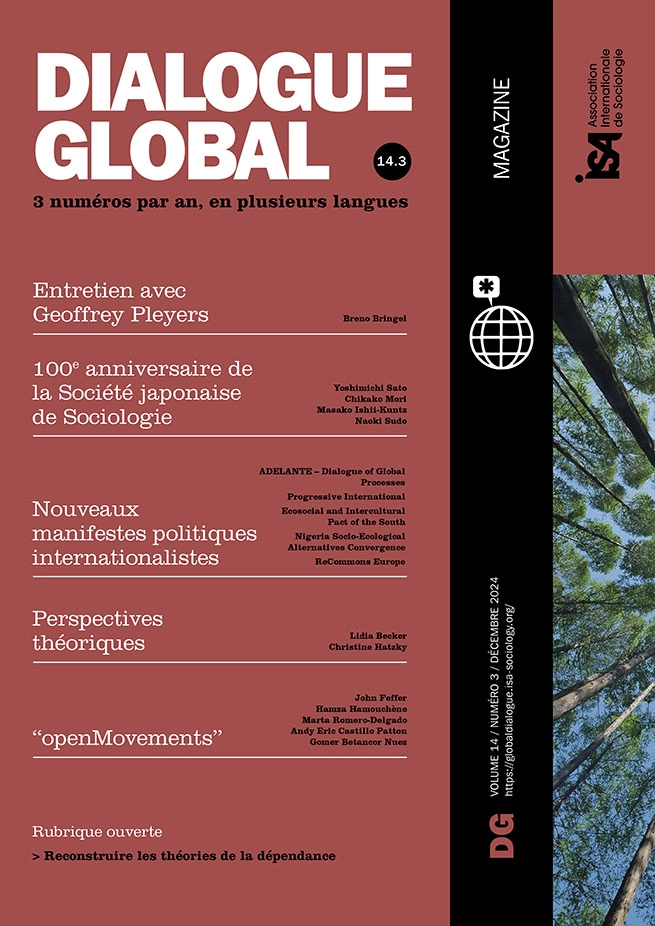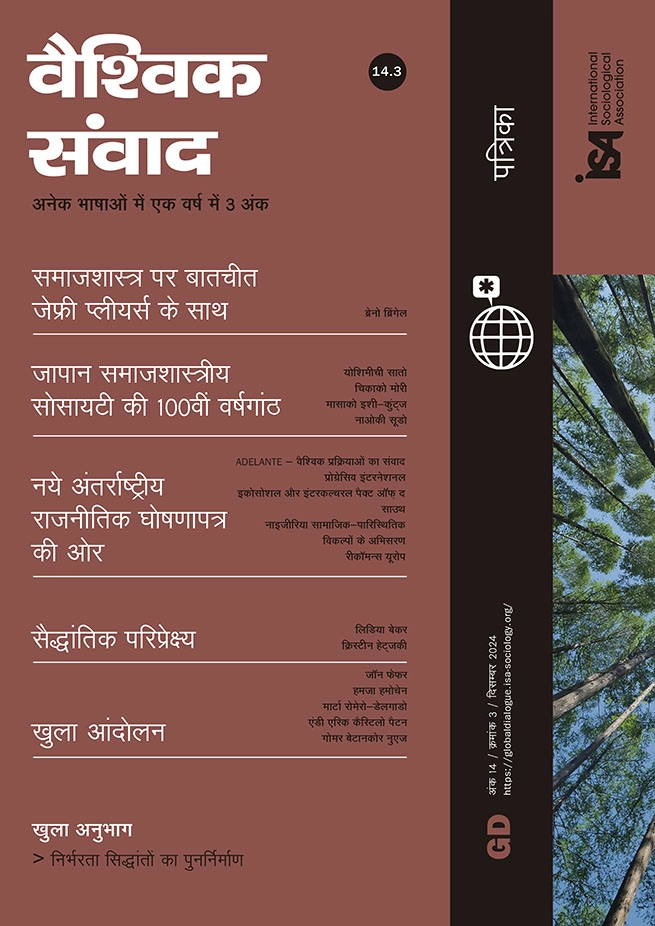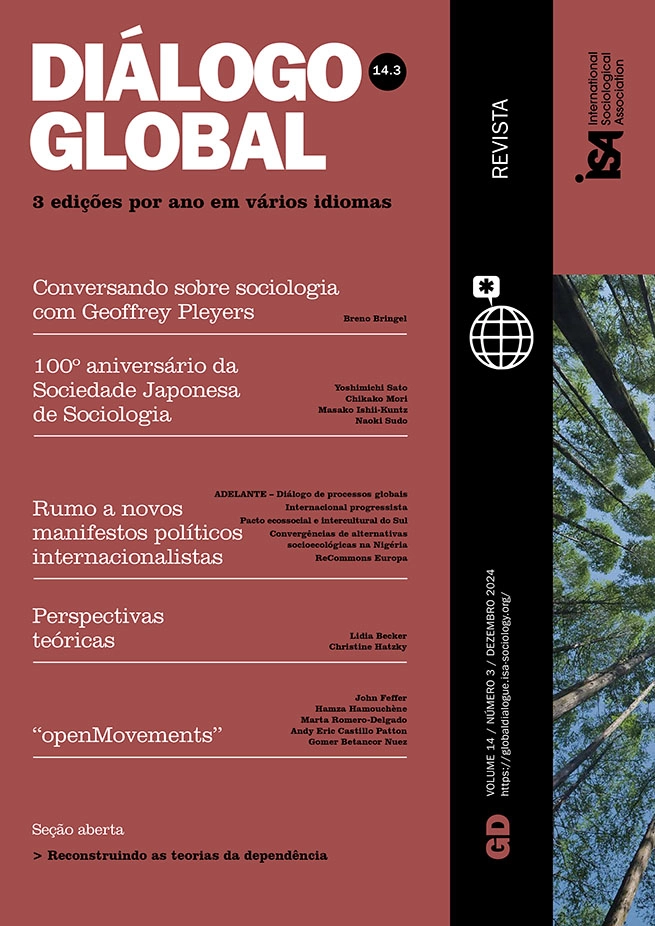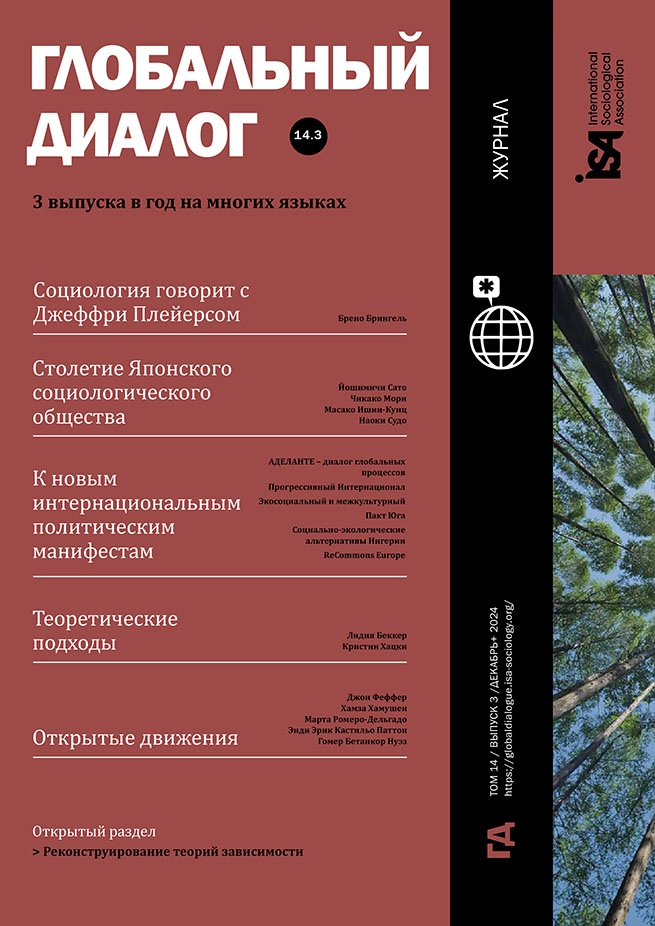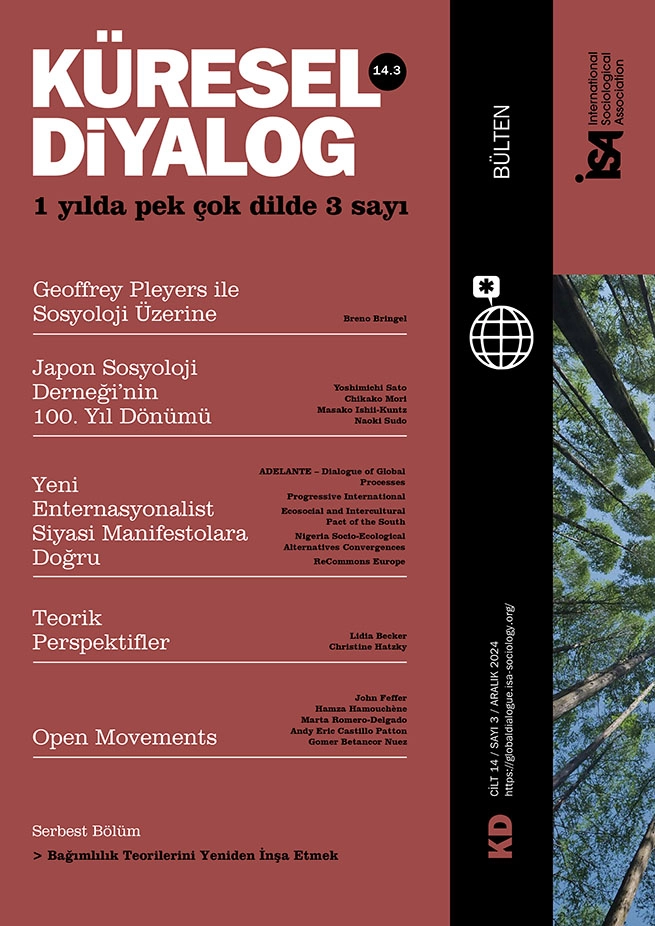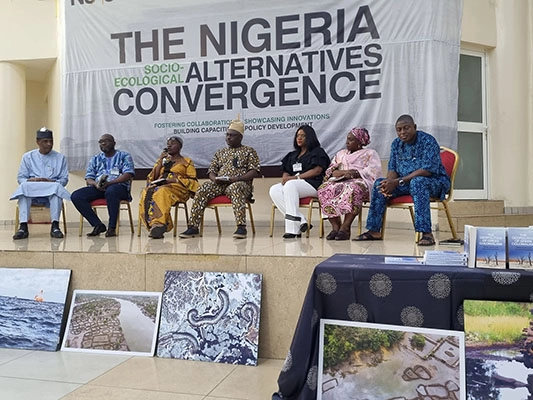Nigeria is at the front line of key social and ecological threats. In the last few decades, the challenges the country faces have increased tremendously, manifesting via multiple layers of impact that threaten the well-being and even the survival of the Nigerian people. Although the country has enjoyed one of the best climates and most diverse ecosystems in the world, this immense natural endowment now stands at a critical tipping point on account of accentuating climate change, biodiversity loss, pollution, and other ecological damage. Decades of reckless and poorly regulated mineral extraction, systematic environmental degradation in the name of “urbanization” and “industrialization,” poor policy development and implementation, and the growing impact of climate change have combined to present the country with ecological threats of existential proportions. On all fronts, ecosystems are deteriorating, communities are in peril, and the future is uncertain.
Despite the manifest nature of these threats, Nigerian authorities at the federal, state, and local levels remain unperturbed and continue to permit practices that accelerate reckless extractivism and systematic destruction of the natural environment, to the detriment of local people. The stark reality that confronts the Nigerian state and its people is that something deliberate, fundamental, and radical must be done to check the current and emerging impacts of the socio-ecological crisis.
The Charter that we present here is a bold call for a profound overhaul of Nigeria’s socio-ecological landscape. It offers a vision and blueprint for a sustainable, just, and equitable socio-ecological order that places the highest value on the well-being of people and the protection of the natural environment.
The challenges we face are unprecedented. Forests have largely disappeared from all over the country. The air is increasingly noxious. Water sources are heavily contaminated. The Niger Delta, once a vibrant ecosystem, has long been associated with hydrocarbon pollution of ecocidal proportions. Desertification is rampant, and droughts have become commonplace. Waterbodies are shrinking and disappearing. Floods are more severe and regular. Coastal sea levels are rising fast and engulfing communities. Agricultural yields are declining. It is therefore imperative that we act with determination and urgency at this time, and this Charter outlines a plan to confront the most urgent of these challenges.
Our vision is of a Nigeria where ecological integrity, social justice, and economic well-being coexist. We must give birth to a new Nigeria where the rights of nature are respected, where communities have control over their resources and enjoy resource democracy, and where everyone has access to clean air, water, and a healthy environment. This manifesto outlines a path towards this vision, rooted in the principles of environmental justice, participatory democracy, and sustainable development. We envision a Nigeria where Nigerians drive transformations that occur in their environment.
Core principles of the Nigeria Socio-Ecological Alternatives Charter
This Charter is anchored on the following core principles and ideological precepts:
- Ecological Justice. This principle recognizes the disproportionate impact of environmental degradation and climate change on people in poor and marginalized communities and pushes for the recognition of this disproportionality in national and global environmental and climate change responses.
- People Participation. This principle emphasizes the emergence of active and resilient communities that are empowered to participate in all decision-making processes that affect their lives and ecological wellbeing.
- Sustain-Ability. This principle recognizes the resilience and know-how of indigenous peoples and promotes their abilities, culture, and skills in developing sustainable long-term ecological solutions and practices that protect the environment and promote further sustainable practices.
- Accountability. This principle highlights the need to hold corporations and government entities accountable for their ecological footprints. It is founded on the firm belief that corporations and governments must comply with established regulations and principles of doing no harm, face penalties when they are in violation of these, and make reparation for any damage their activities have caused.
- Solidarity and Partnership. This principle recognizes the value of fostering unity and cooperation among diverse communities and movements across the world with the overall aim of building strong, vibrant, and united forces for ecological transformation and protection of the planet.
Charter of Demands
1. Drought and Desertification
In recent decades, states in northern Nigeria have experienced increasing droughts. These prolonged periods of lower-than-average rainfall which fails to meet water requirements for crops and livestock, have resulted in a dire outlook for the overall socio-economic well-being of people. Being predominantly farmers, the indigenous people in the affected areas suffer significant income reductions due to failed crops and livestock deaths.
Drought also manifests via severe health risks that can dangerously impact indigenous populations. Water stress and a lack of adequate nutrition lead to health concerns such as malnutrition, particularly among vulnerable groups, including children and the elderly. The overall poverty and precariousness engendered by drought-induced crop failures and water shortages force rural populations to migrate, triggering conflicts and creating socio-economic challenges.
The effects of climate change, overgrazing, deforestation, and unsustainable land use practices together with prolonged exposure to drought has brought about desertification in several states in northern Nigeria. This results in the loss of arable land, compromising food security and livelihoods. Records indicate that desertification has already affected about 75% of land in the front-line states, which amounts to about 43% of the total land area in Nigeria. It is also estimated that the desert expands from the northeast to the northwest of Nigeria by 600 meters annually. It is equally estimated that about 50% of the waterbodies in northern Nigeria have shrunk significantly on account of drought and desertification. The shrinkage of Lake Chad has been partially attributed to these same root causes.
It is vital that the government takes immediate and appropriate actions to ensure that the impacts of drought and desertification on vulnerable people are mitigated, and that other policy measures are taken to reverse the trend.
In line with this, the people demand: afforestation and reforestation initiatives, support for community adaptation strategies, environmentally sustainable land management, and water conservation projects.
2. Floods
According to the United Nations Development Programme (UNDP), flooding is the most common and recurring disaster in Nigeria. Since at least 2012, Nigeria has experienced recurring and increasingly severe foods, which impact communities across the country with devastating consequences. The 2012 floods were among the most significant in recent history, affecting over 30 of Nigeria’s 36 states, displacing millions of people, and causing extensive damage to homes, infrastructure, and farmland. This event marked an intensification of the ecological challenges the country continues to face.
In subsequent years, the pattern of severe flooding has persisted, with major incidents occurring almost annually. The floods are often attributed to heavy and prolonged rainfall, poor urban drainage systems, deforestation, and the release of water from dams. Those in 2018 and 2020 were particularly destructive, affecting large areas and leading to substantial economic losses.
The impact on Nigerian communities has been profound. Floods have led to continued loss of life, displacement of families, and destruction of critical infrastructure, including roads, bridges, and schools. The agricultural sector has been severely affected, with farmland submerged, crops destroyed, and livestock lost, leading to economic hardship for farmers and contributing to national food shortages. Additionally, health risks have increased due to waterborne diseases and the disruption of clean water supplies.
Despite these impacts intensifying, the government continues to fail to design responses that are both effective and sustainable. The response of authorities has largely been to provide skeletal emergency relief and early warnings. These measures have often been inefficient and insufficient to fully mitigate the impacts of floods. When flood warnings are broadcast, there is no corresponding effort to support communities in need of relocation and whose survival is threatened.
In line with this, the people demand: flood control infrastructure, protection of wetlands, relocation of highly affected communities, economic assistance, moving beyond simple early warnings, and responses to climate change.
3. Deforestation
Nigeria has one of the world’s highest deforestation rates. According to the United Nations, an estimated 3.7% of its forests are destroyed each year. The primary causes are clearing land for rapid agricultural expansion and logging for timber, both legal and illegal, which are chiefly linked to corruption and ineffective law enforcement. Nigeria’s forest cover has drastically reduced from about 40% in the 1960s to less than 10%. With the increasing rate of deforestation, the scenario has become much worse today. Deforestation threatens biodiversity, contributes to climate change, and disrupts water cycles. The loss of forest cover not only negatively impacts wildlife, but also local communities who depend on forests for their livelihoods.
New threats against the forests have emerged recently. Increasingly, forests in Nigeria are being perceived as another source of revenue generating income to fill the coffers of states. This has resulted in an unprecedented push to cut down forests for their monetary value. It is also noteworthy that in recent times, global efforts to mitigate climate change have resulted in a new wave of forest “commodification” and “grabbing” for their value in generating illusory carbon credits. The value of forests cannot be assessed in monetary terms without falling into the trap of believing that nature cannot be protected unless there is a financial value attached to it.
In line with this, the people demand: community initiatives to protect forests, an end to the financialization of nature, an end to plantation extension, and reforestation.
4. Water Rights
Billions of people around the world still lack access to clean water, with vulnerable groups such as women, children, and the underclass in society having to suffer disproportionately and spend exorbitant amounts to secure this necessity. In many instances, this lack and scarcity leads to the deterioration of public health, security, and the overall welfare of people. The crisis is worse in developing countries, including Nigeria, where economic constraints, infrastructural deficiencies, neo-colonial machinations, environmental challenges, and systemic failures of governance combine to make water rights a pressing national and environmental emergency and a clear manifestation of the stark inequalities in society. In Nigeria, there is an ongoing debate over whether water should be regarded as a public good or an economic commodity, in the struggle between public ownership and private control of water resources.
It is important to note that the colonial imposition of capitalist structures established the initial conditions that have eventually resulted in the water challenges now being experienced in Nigeria. Those policies facilitated the exploitation of natural resources and labor, setting a precedent for post-colonial policies that continue to manage water as a business resource. The stress placed on water supplies is being exacerbated by the impacts of climate change and widespread pollution, especially as a result of hydrocarbon extraction and mining.
The people boldly proclaim that water rights are ethical, social, and justice issues. We note that Nigeria is a signatory to the United Nations recognition of the universal right to water and sanitation (Resolution 64/292 of 2010). Moreover, the pollution of waterbodies in Nigeria is a violation of the rights of nature which recognizes rivers, forests, and ecosystems as entities with rights.
In accordance with this, the people demand: the decentralizing of water management, resistance against the commercialization of water, recognition of access to clean water as a human right, strict sanctions for polluting water, and recognition of the rights of nature.
5. Biodiversity Conservation and Ecosystem Restoration
Nigeria has diverse ecosystems, ranging from rainforests and savannas to coastal mangroves and wetlands. These ecosystems support a wide array of microorganisms, plants, and animals including many species found nowhere else on earth. Nigeria is home to over 864 species of birds, 117 amphibians, 203 reptiles, 775 fish, 285 mammals, 4,715 vascular plants, and many undocumented species.
Nigeria’s biodiversity faces serious threats from industrial agriculture (characterized by excessive use of agrochemicals, excessive tillage, monocultures, etc.), deforestation, soil degradation, pollution, overexploitation of natural resources, and climate change. Other risks include those posed by overpopulation, rapid urbanization, industrialization, poor economic development, and inefficient laws and policies on biodiversity conservation.
In response to declining agricultural yields, the government has permitted the adoption of genetically modified organisms (GMOs) and chemical fertilizers and pesticides which further destroy biodiversity and the environment. Over the years, reliance on agrochemicals in the Nigerian agricultural sector has been on the increase, with more than 80% of farmers in Nigeria currently using inorganic pesticides and fertilizers. Farmers are unaware of the composition of these pesticides and often they do not apply them according to the specifications.
The people demand the adoption and promotion of agroecology as a solution to the biodiversity challenges the country is facing. Agroecology is a holistic and integrated approach that simultaneously applies ecological and social concepts and principles to the design and management of agriculture and food systems. It optimizes the interactions between plants, animals, humans, and the environment, while also addressing the need for socially equitable food systems within which people can exercise choice over what they eat as well as how and where it is produced.
In line with this, the people demand: a transition to agroecology, an increase in support for small-holder farmers, domestication of the Convention on Biological Diversity, the adoption of the precautionary principle, protecting reserved areas, and the removal of patent rights from all plant seeds and food.
6. Mining and Solid Minerals
While mining for minerals such as tin, columbite, tantalite, wolframite, lead, zinc, gold, coal, etc. is widespread in Nigeria, its contribution to the Nigerian economy is rather insignificant. The mining of minerals in Nigeria accounts for only 0.3% of its GDP. In recent years, however, the Nigerian government has actively sought to diversify its economy beyond reliance on oil and gas by revitalizing the mining sector. Key developments in this sector include a range of initiatives, such as regulatory reforms, that create a legal framework for mining, like the Nigerian Minerals and Mining Act of 2007 and the Nigerian Mining Regulation of 2011.
In recent times, artisanal small-scale mining has become more prominent in the sector. This essentially involves collecting and refining metals and minerals from secondary and primary ores using crude techniques. This informal, poverty-driven activity is environmentally damaging and poses serious health and safety risks for workers and communities. Whether artisanal mining or large-scale government sanctioned mining activities, the negative impacts are the same. Mining activities generate various impacts on the environment including land degradation, erosion, ecological disturbance, destruction of natural flora, pollution of air, land and water, health risks, and radiation hazards.
One of the major global problems of the exploitation of solid minerals and mining is the climate change effect. In their radioactive decay processes some minerals spontaneously disintegrate, radiating and giving out excess energy capable of negatively affecting the global environmental temperature. The exploitation and mining of solid minerals also produces harmful gases such as methane, which can lead to fires breaking out and harm to the environment.
Solid minerals exploitation and mining involve massive clearing of crustal vegetation and plants. This exposes bare land, making it more susceptible to desert encroachment and negatively affecting people, animals, plants, agricultural productivity, land use/planning, and particularly endangered species. The impact of land degradation includes weathering, erosion, gully formation, and mass movements, which are significant challenges associated with solid mineral exploitation and mining. These issues can stem from mine tailings, waste dumps, uncontrolled excavation, abandoned mining pits, and the failure to restore mined land.
Mining activities also have negative impacts on people’s health, lives, and cultural behavior due to the introduction into the environment of toxic, carcinogenic, and otherwise harmful metals, as well as mine dumps and tailings. These pollutants contaminate the air, water, and soil, making them unsafe for humans, animals, and plants. In Zamfara, where gold mining occurs, exposure to mercury can harm the central nervous system and cause issues such as eye, skin, and stomach irritation; respiratory problems; insomnia; irritability; indecision; headaches; weakness; and weight loss.
To address these ills, the people demand: enforcement of mining regulations, requiring the free, prior, and informed consent of affected indigenous people; proper research into mineral deposits in Nigeria; adherence to international best practices, including decommissioning and mining-free zones.
7. Energy Transition
Since the global energy sector is the largest source of global greenhouse gas emissions, responsible for about 73% of total emissions, the energy transition ought to focus on shifting from sources of energy responsible for emissions to renewable sources like wind, solar, and hydro. The aim must be to cut CO2 emissions at source, in order to significantly mitigate the impacts of climate change. Nigeria has joined other countries in setting targets to reduce greenhouse gas emissions. These targets are outlined in various national frameworks, including a target of hitting Net-Zero Emissions by 2060, captured in the National Determined Contributions (NDCs) of 2021.
The energy transition is critical for achieving a sustainable future. However, there are a number of concerns which the national conversation on energy transition does not address. The first is that the need to transition is an issue of justice. Nigeria and other countries suffering the worst impacts of climate change have contributed the least to producing the historical emissions that have caused the climate crisis. In this respect, those countries with the greatest historical emissions must bear the largest responsibility for the transition, including funding it. Our approach to the transition must therefore be through the lens of justice: it must address historical harm and create room for redress, as well as meeting the energy needs of communities.
An important difficulty Nigeria faces is securing energy for cooking. Fuelwood is a major source of energy for many Nigerians, with over 70% of households relying on it for cooking and heating. This reliance is particularly high in rural areas where alternative energy sources are less accessible. The use of fuelwood contributes to deforestation, as trees are cut down for firewood. Deforestation in turn reduces the number of trees available to absorb CO2, thus increasing atmospheric carbon levels.
It is important to be mindful that the quest for so-called transition minerals to drive renewable energy sources must not reinforce the same inequalities and abuses which the extraction of fossil fuels engendered. Nigeria must consciously avoid getting locked into another energy pathway which recreates the same exploitative relations of production and expands sacrificial zones across the nation.
In line with this, the people demand: inclusive policy development and stakeholder engagement, job transitioning, compensation, environmental remediation, and access to clean energy.
8. Oil and Gas Extraction
Since 1956, crude oil has been extracted in commercial quantities from the Niger Delta nonstop. From a few initial onshore oil wells, the business of extraction has expanded tremendously with active oil extraction sites throughout the Niger Delta, and Lagos state. On account of the vast oil and gas exploration and exploitation activities, the Niger Delta is one massive oil and gas field. The region also accounts for a substantial portion of global gas output with proven reserves of 192 trillion cubic feet. The extraction of oil and gas from the region has created immense opportunities for Nigeria to earn huge revenues at the national and sub-national levels.
Despite massive hydrocarbon earnings, conditions in communities within the Niger Delta where extraction takes place are unbelievably horrific. The over 40 million people who live in this oil and gas producing region have not benefited from the huge amounts of resources pumped from beneath their lands, rivers, and creeks. Rather than improving welfare, infrastructure, healthcare, education, and security, revenues from oil and gas have instead driven an unusual paradigm of poverty, conflict, repression, and underdevelopment.
The major problems of the region have been created by reckless hydrocarbon extraction activities. For instance, of the 3.5 billion cubic feet of associated gas estimated to be produced annually in Nigeria, 2.5 billion cubic feet (70%) is burnt off in gas flares. The flaring of associated gas continues not because there are no alternatives for managing the gas in a way that would have less environmental impact, but because oil companies and the Nigerian government have consistently refused to stop it. Oil companies in particular consider it cheaper and more convenient to continue flaring gas than to establish the infrastructure required to manage it. Deadlines to end gas flaring have continued to be shifted from 1979 to 2030 and perhaps even 2060. Even after a court judgment declared gas flaring illegal, the government prefers the paltry fines paid by oil companies to taking any real action to end gas flaring.
The movement of hydrocarbon products from various points of extraction to terminals from where they are transported to Europe, the USA and elsewhere has resulted in up to 7,000 kilometers of pipes being buried beneath the land, swamps, and rivers of the Niger Delta, sometimes right across people’s farms and backyards. Some of these pipes have been buried for more than 40 years; with alarming regularity and chiefly on account of age and corrosion, the pipes rupture releasing crude oil that destroys crops, poisons rivers, pollutes streams and displaces whole communities. It gets worse: sometimes the ruptured pipes blow out in huge fires that burn for days, incinerating whole communities and their livelihoods.
After nearly 70 years of oil extraction with all the ensuing devastating impacts for the environment, livelihoods and human rights, the largest transnational oil companies operating in the Niger Delta – Shell, ExxonMobil, Total Energies, Chevron, and Eni – have perfected plans to sell off their assets, move into deeper waters or simply leave the region. As they leave and Nigerian companies buy up the oilfields left by these oil majors, there are no provisions concerning who is liable for historical contamination and related socio-ecological issues. As companies divest and local actors take over, they all immediately deny responsibility for historical damage. For oil-producing and impacted communities, divestment means the possibilities of holding corporations accountable for pollution become more remote.
Following from this, the people demand: an ecological audit of the Niger Delta; emergency response to disasters; and oil company divestment.
Nigeria Socio-Ecological Alternatives Convergences
This Manifesto was launched at the Nigeria Socio-Ecological Alternatives Convergence Meeting held in Abuja on June 20, 2024. The Charter is a living document and will be reviewed from time to time by the peoples of Nigeria to ascertain the level of response by policymakers and to include other areas where the people and the environment are treated as disposable.
